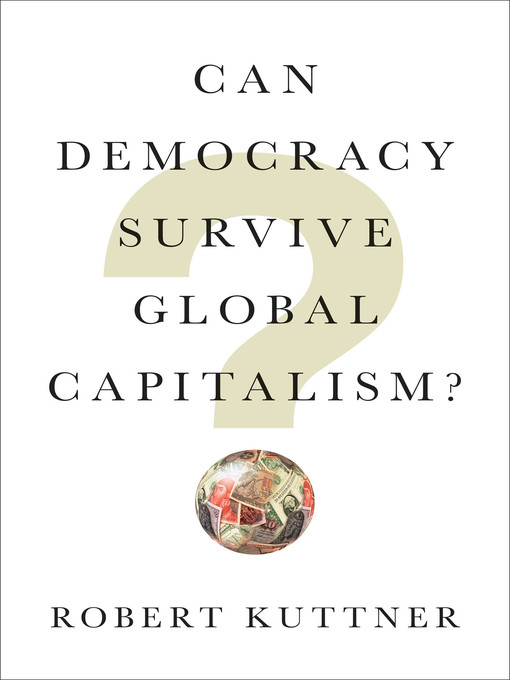
Can Democracy Survive Global Capitalism?
- اطلاعات
- نقد و بررسی
- دیدگاه کاربران
نقد و بررسی

January 8, 2018
Americans still struggling to comprehend the election of President Trump will find American Prospect coeditor Kuttner’s cogent analysis illuminating. His critique of the Clinton campaign, which echoes and expands on Mark Lilla’s controversial New York Times op-ed “The End of Identity Liberalism,” is woven into a much broader survey of recent trends—both national and international—that have put liberal democracy in retreat across the world. Kuttner links that development, and the related potential resurgence of fascism, to globalization, which writers such as Thomas Friedman generally view as an unmitigated good. The reality, as Kuttner sees it, is that the “deregulation of constraints on transnational movements of money, products, service and labor” changes “the political distribution of power domestically” and increases the “influence of elites” who support globalization. He builds his case methodically and in a manner accessible to lay readers without a background in economics, looking at how tighter governmental controls impacted powerful financial institutions over the past century. However, even those who share his perspective may not necessarily share his optimism that the Democrats will choose a progressive standard-bearer in 2020, or that such a candidate would prevail against Trump’s brand of populism. As such, Kuttner’s analysis is thought-provoking but not fully convincing.

February 1, 2018
Democracy and the world's dominant economic system are at loggerheads. So argues American Prospect co-founder Kuttner (Debtors' Prison: The Politics of Austerity Versus Possibility, 2013, etc.) in this vigorous critique.The short answer to the titular question is...well, maybe, but probably not. By the author's account, the great successes of postwar capitalism were precisely those that expanded the civil and human rights and material well-being of ordinary people, the post-New Deal promise that labor would have a voice and that the social contract would allow access to health, education, and other public goods, all of which he describes as "a system of political economy, whose rules were drastically different from the usual rules of capitalism." Those "usual rules," Hobbesian and dog-eat-dog, have generated ever more inequality even as the financial system becomes both more internationalized and less regulated. At the same time, the "equalizing mechanisms" that allow children from poorer families to participate in the social system and become adults with at least some chance of success have become vastly weaker. These are all the result of not economic but political choices, Kuttner insists; as he writes, "nothing in the structure of the late-twentieth-century economy compelled a reversion to an unregulated nineteenth-century market," but that, effectively, is where we are. The author harbors no hope that the faux populism of Trump will yield any improvements for the 99 percent, and he suggests that even the most progressive of corporations are pleased with the deregulatory mood that reigns today, with the result that any chance of resuscitating democracy will require the involvement of "empowered citizens." To that end, he closes with a series of prescriptions for reform, including establishing programs for "green infrastructure on a serious scale" and re-establishing regulatory boundaries on the market.Capitalism as we know it today is anti-democratic--and not likely to relinquish power without a fight. A useful resource for setting agendas.
COPYRIGHT(2018) Kirkus Reviews, ALL RIGHTS RESERVED.




دیدگاه کاربران